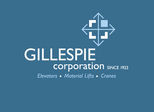The Ethnic Heritage Ensemble is an anachronism. Led by percussionist and vocalist Kahil El’Zabar, the group plays acoustic instruments, including ancient ones like mbira, cajón, bells and voice, and their itinerary reads like those of a bygone era.
EHE is in the thick of playing 24 gigs in 26 days throughout North America. El’Zabar has taken the Ensemble on the road like this for 49 consecutive years. In today’s jazz world, nobody does that. The 69-year old percussionist estimated he has five years left of this kind of non-stop touring.
This incarnation of the band, featuring trumpeter Corey Wilkes and baritone saxophonist Alex Harding, played for 95 enthusiastic listeners at the Parlor Room in Northampton on February 8. Their 90-minute set came on the heels of one of their two days off. They made the drive on Tuesday from Washington, DC, where they played to a full house at Rhizome.
Playing mbira (African thumb piano), cajón (Afro-Peruvian box percussion), drum kit, and fit with ankle rattles, El’Zabar cut quite the figure. Fit and debonair, the Chicago-born drummer exudes charisma and has lived a full and interesting life. A natural storyteller, he regaled us with tales of playing basketball in a Rucker tournament all-star game with Nate Archibald, George McInnis and Billy Bang. He told us how as a boy, he would mow the lawn and do errands for his neighbor Mamie Till after her son was murdered. His mentor, Phil Cohran, who helped found the Association for the Advancement of Creative Musicians (AACM) and named the organization, taught him to play thumb piano. Cohran’s Artistic Heritage Ensemble served as inspiration for Zabar’s band. Another influence was Acklyn Lynch, an early member of the UMass W.E.B. DuBois Department of Afro-American Studies, who guided him towards a career in the arts.
Over the course of his career, El’Zabar has served as chair of the AACM and was knighted by the French government. He has taught at the university level, published poetry, released more than 50 recordings and founded OOHnow, a cultural e-commerce network. El’Zabar was the subject of the documentary film Be Known: The Mystery of Kahil El’Zabar, and has performed with Stevie Wonder, Paul Simon, and Nina Simone. He has scored and appeared in feature films ("Love Jones", "Mo' Money" and "How U Like Me Now" and "Savannah"), and did arranging for the stage performance of The Lion King. He tailors clothing for himself and others.
El’Zabar’s music flows. His original melodies are simple and beautiful. When he played them on mbira, they had spiritual luster. His vocals were as virtuosic as his drumming. His unaccompanied vocal break during “Bebop”, filled with yodels, scat and various mouth sounds, is peculiar to El’Zabar; the people erupted. The band brought energy and innovation to the standards, “Caravan”(Juan Tizol, Duke Ellington), “Bebop” (Dizzy Gillespie), and their encore, “Freedom Jazz Dance” (Eddie Harris). The unusual instrumentation gave new life to the tunes, and the addition of foot percussion and vocals gave the band five voices to play with. The group had great dynamic range, moving from whisper to roar and back again over the course of a tune, giving us access to a wide range of moods and emotion.
Now 43, Corey Wilkes has been a colleague of Kahil’s for over 17 years. He’s featured in the film, Be Known, which documents a 2007 tour by the Ethnic Heritage Ensemble. When Makaya McCraven moved to Chicago, Wilkes was one of the first persons he connected with; they’ve become fast friends. Jazz Shares stalwart Jon King and I, who have known both Makaya and his father, Steve, since their Valley days, were happy to mug with Corey and send the results to our drummer friends via the internet. This was Wilkes’ first appearance in the Bay State since he left Berklee over 20 years ago. Dressed in black and wearing shades, he looked every bit the hip jazz man. Playing the custom made Lotus trumpet he got last month, he blew melodious statements all evening. He was meticulous about his pre-concert routine: no eating past 2:00pm, a special elixir to open up the breath, a specific warm-up regimen. He is serious about his craft and the results speak for itself. In 2003, Wilkes replaced Lester Bowie in the Art Ensemble of Chicago, and subsequent work with Roscoe Mitchell, DJ Logic, Nona Hendryx, and his own projects, have confirmed he is on the right path.
Alex Harding has been with the Ethnics for four years and is featured on their last two albums. Born in Detroit in 1967, he recently moved back to the Motor City after decades in New York to be close to aging parents. We talked about the Detroit scene, and especially Yusef Lateef, a patron saint of both Detroit and western Massachusetts. Harding seemed moved by the on-line celebration of Dr. Lateef’s centennial I helped put together, as we watched responses by Benny Maupin and his friend Ralph (Buzzy) Jones. We also talked about his fond memories of the two weeks he spent in Amherst in 1990 at Jazz in July with Brother Yusef and others. Harding started on tenor sax, but was persuaded to switch to the baritone sax by the legendary band director, Ernie Rogers, who was trying accommodate the arrival of a new student, James Carter. Harding has been playing the same horn Mr. Rogers found him in high school. “My parents paid $400 down and $100 a month for a year”, he said. Harding was the music director for the Broadway production of Fela!, and had the good fortune to be a part of Julius Hemphill’s Saxophone Sextet. He’s a veteran of bands led by visionaries like David Murray, Muhal Richard Abrams, Hamiet Bluiett, Craig Harris and Oliver Lake. I saw him last spring, sharing the bandstand with Sam Newsome, Román Díaz and others in Francisco Mora’s very hip band, Afro-Horn.
It was great to share my home (and washing machine) with these committed road warriors. I first presented Kahil El’Zabar (with Ernest Dawkins, Joseph Bowie and “Atu” Harold Murray) at UMass in 1998, and I love being a stop on his February barnstorming tours, now and again. His dogged pursuit spreading the Great Black Music gospel is what we need now.



























